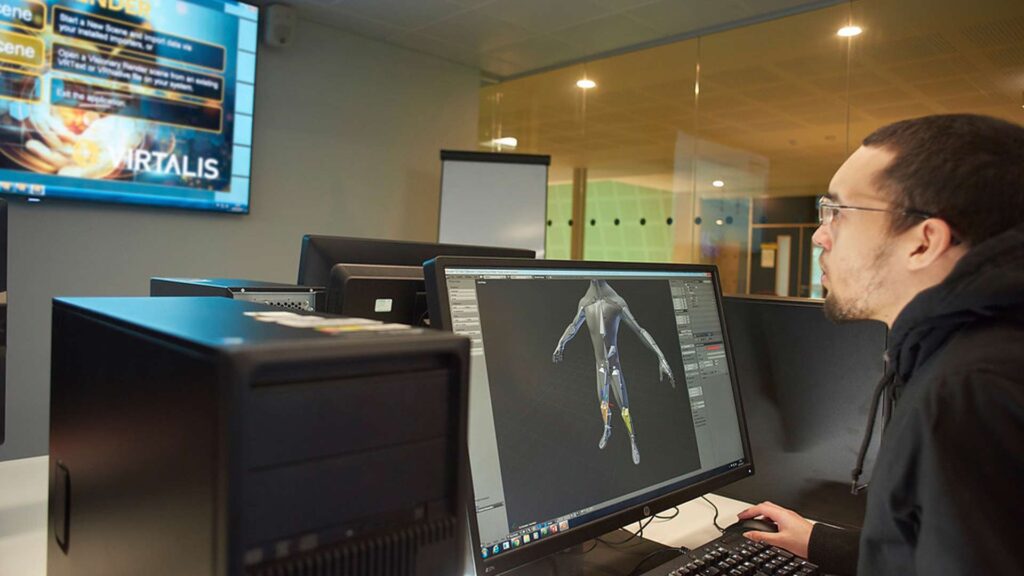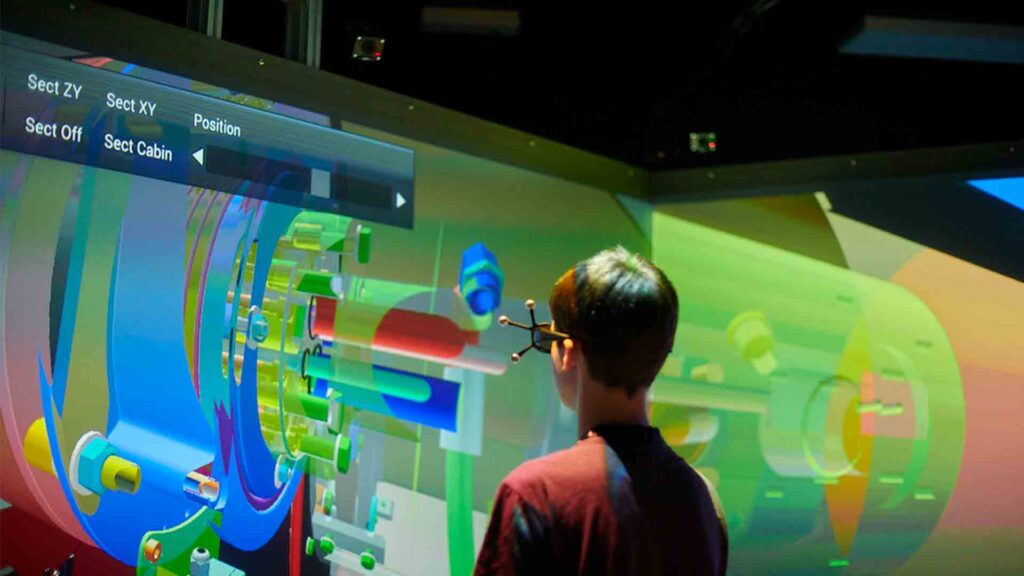Software Engineering BSc (Hons)
UCAS code: II33
Unlock the possibilities of modern computing with our software engineering degree. Master a range of programming languages and modelling skills on a software engineering degree awarded initial accreditation by BCS, The Chartered Institute for IT.
Overview
| Course length: | 3 years full-time Typically 4.5 years part-time |
|---|---|
| Start dates: | September 2025 September 2026 |
| Location: | Edge Hill University |
| Example offers: | BCC-BBC (A Level) or DMM (BTEC) View full entry criteria |
| Subject(s): | Computer Science |
| Faculty: | Arts and Sciences |
| Department: | Computer Science |
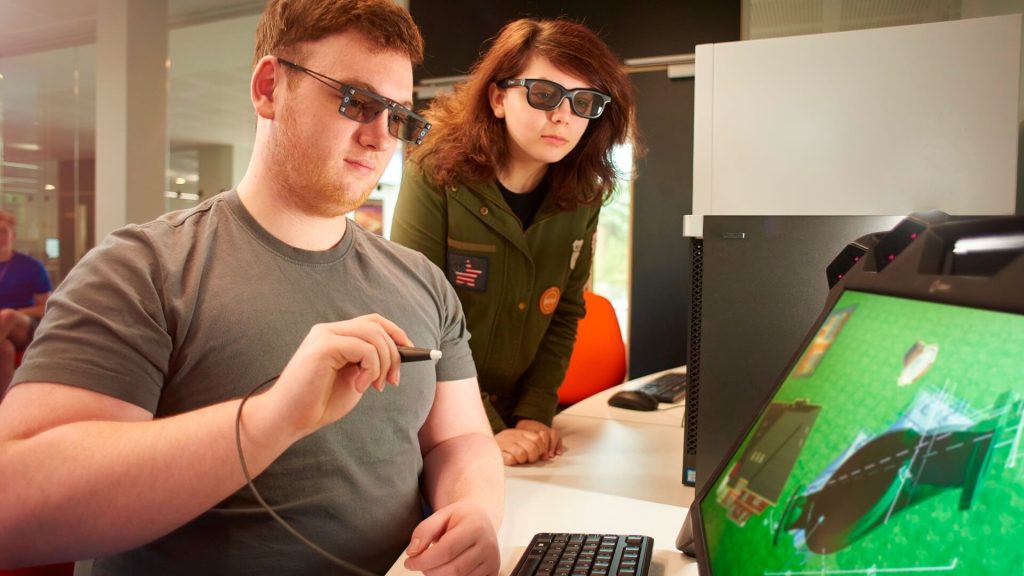
Discover how to design, develop and build systems that help businesses overcome issues and technological problems. Expand your technical expertise in computer networking, system development, databases and mobile. Prepare for a rewarding career as a software engineer.
Do you have a keen eye for detail? Do you rise to challenge enthusiastically? Our software engineering degree focuses on creating and testing software solutions and how you can maintain and improve them.
You’ll graduate from the BSc Software Engineering course with the skills needed to manage the software systems businesses rely on. Kickstart your career and gain the practical skills that boost your creative thinking and confidence in the quality of your work.
Software engineers can find themselves in a variety of technical roles, from working on AI in gaming, designing distribution systems or developing mobile software and hardware platforms.
An accredited degree
This course is accredited by BCS, The Chartered Institute for IT, for the purposes of fully meeting the academic requirement for registration as a Chartered IT Professional. Successfully completing an accredited honours degree is the first step to full BCS membership and to being awarded chartered status.
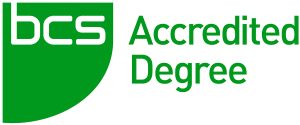 BCS, The Chartered Institute for IT
BCS, The Chartered Institute for IT
 This course is also delivered by Van Lang University, Vietnam.
This course is also delivered by Van Lang University, Vietnam.
Course features
-
International students can apply
-
Professional accreditation
-
Sandwich year option available
-
Studying abroad option available
-
Work placement opportunity
What you'll study
We’ll cover the fundamentals of software engineering in Year 1. These foundations of computer science will help you understand underpinning mathematical algorithms, web design and development. You’ll also learn how to analyse and construct software systems that modern computer architecture depends on. Innovative seminars and experiments will unleash your problem-solving capabilities for common computing issues.
Software engineering is a balance between theory and practical. In Year 2 of the software engineering course, you’ll explore topics including databases and security and build experience of the software testing process. To offer support, we teach a module dedicated to enhancing your employability and developing essential skills for the workplace. If you enjoy it, you can also choose to do a 12-month placement in industry.
Put all your learning into practice with your final independent project. This piece can be the design and development of software, hardware or a research project. The focus this year is on independent study, but we’ll guide you every step of the way. You’ll shape your study with optional modules in specialist areas of software engineering.
How you'll study
Teaching methods are designed in consultation with leading employers in the region. Many classes are based in computer workshops, focusing on student activity as a means of learning. We introduce theoretical concepts by building on concrete practical activity.
To enhance your employability, you will be given opportunities to work together and develop the essential people skills to complement your technical ability, while engaging in realistic work-related activities and taking the opportunity to relate theory to practice via a work placement.
How you'll be assessed
You will be assessed through a combination of practical exercises, reports, essays and examinations. We want you to develop the ability to work effectively both independently and as part of a team, therefore assessment includes both of these forms, though the emphasis is strongly on individual work.
Who will be teaching you
You will be taught by staff who are passionate about student learning and development. The programme team are specialists in computing and active researchers in areas including web information architecture, complex systems, embedded systems, data visualisation and data science. Academic staff are regular contributors to academic conferences and journals.
Entry criteria
Entry requirements (2025 / 2026)
Typical offer 104-112 UCAS Tariff points, for which no specific subjects are required, plus GCSE Mathematics at Grade C or Grade 4 or above (or equivalent).
Please note, for all programmes in the Department of Computer Science, a level 2 numeracy qualification is not considered as equivalent to GCSE Grade C or Grade 4 in Mathematics.
Example offers
| Qualification | Requirement |
|---|---|
| A Level | BCC-BBC. |
| BTEC Extended Diploma (or combination of BTEC QCF qualifications) | Distinction, Merit, Merit (DMM). |
| T Level | Overall grade of Merit. |
| International Baccalaureate (IB) | We are happy to accept IB qualifications which achieve the required number of UCAS Tariff points. |
| Access to Higher Education Diploma | 45 credits at Level 3, for example 9 credits at Distinction and 36 credits at Merit or 15 credits at Distinction and 30 credits at Merit. The required total can be attained from various credit combinations. |
Please note, the above examples may differ from actual offers made. A combination of A Level and BTEC awards may also be accepted.
If you have a minimum of two A Levels (or equivalent), there is no maximum number of qualifications that we will accept UCAS points from. This includes additional qualifications such as Extended Project Qualification (EPQ), AS Levels that haven't been continued to A Level, and General Studies AS or A Level awards.
English language requirements
International students require IELTS 6.0, with a score no lower than 5.5 in each individual component, or an equivalent English language qualification.
If your current level of English is half a band, one band, or one-and-a-half bands lower, either overall or in one or two elements, you may want to consider our Pre-Sessional English course.
How to apply
Apply full-time
Read our guide to applying through UCAS to find out more about the application process.
International
Please see our international student pages for further information about how to apply as a prospective international student.
Part-time applications require a direct application to Edge Hill. Please select the year of entry that you wish to apply for.
Should you accept an offer of a place to study with us and formally enrol as a student, you will be subject to the provisions of the regulations, rules, codes, conditions and policies which apply to our students. These are available at www.edgehill.ac.uk/studentterms.
If you join a full time undergraduate degree at Edge Hill University, we will guarantee you the offer of a room in our halls of residence for the first year of your course.
Discover our accommodation
Facilities
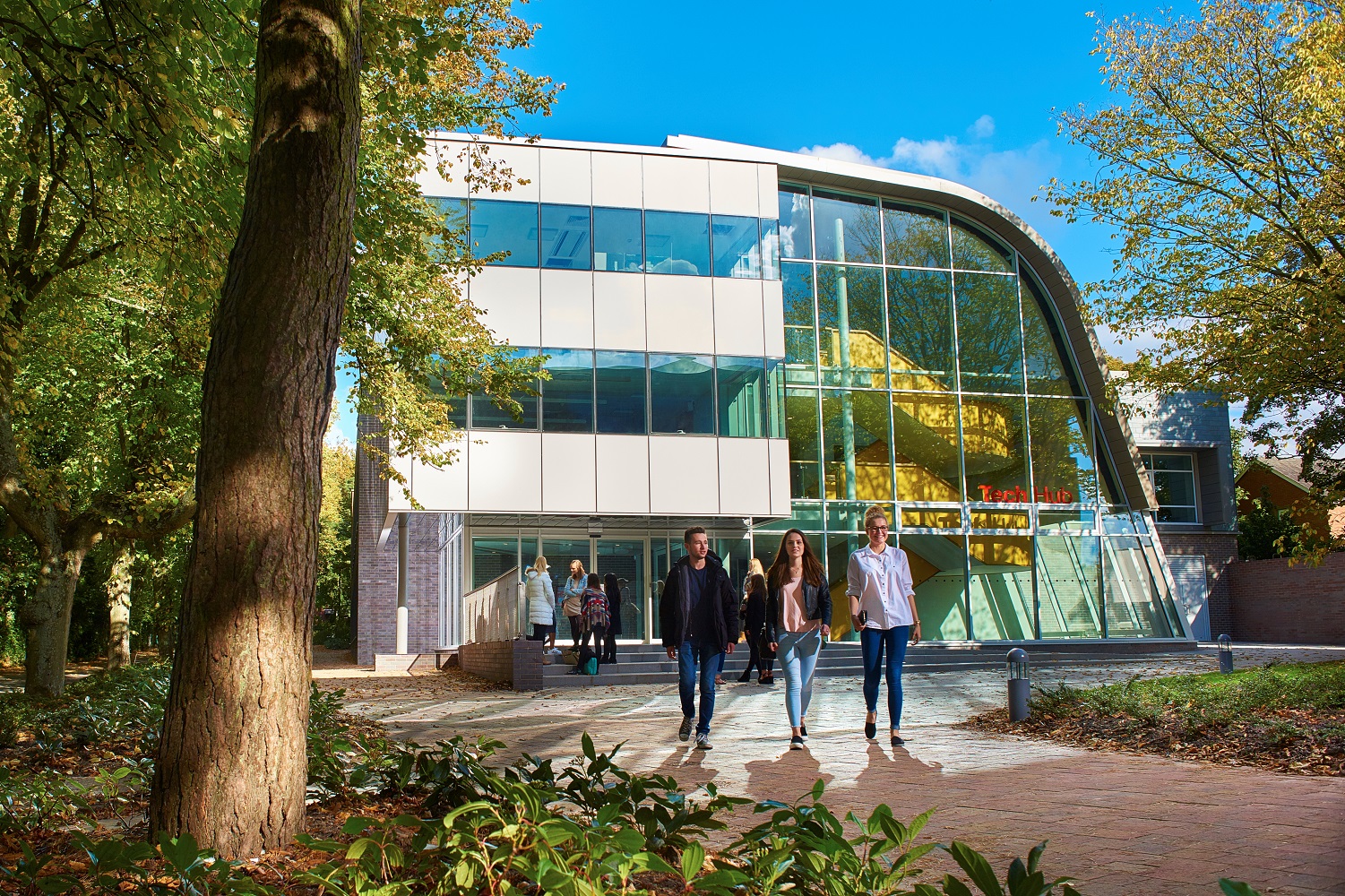 The Department of Computer Science is based in the state-of-the-art £13million Tech Hub. This purpose-built development offers highly contemporary suites of outstanding facilities for Computer Science and Engineering students. Our modern computing and engineering laboratories are equipped with comprehensive test and measurement equipment, high-specification computers, high-resolution screens and the latest hardware and software.
The Department of Computer Science is based in the state-of-the-art £13million Tech Hub. This purpose-built development offers highly contemporary suites of outstanding facilities for Computer Science and Engineering students. Our modern computing and engineering laboratories are equipped with comprehensive test and measurement equipment, high-specification computers, high-resolution screens and the latest hardware and software.
A four-screen CAVE (Computer Augmented Virtual Environment) provides a super immersive 3D virtual environment, enabling users to immerse themselves in a virtual room and experience real life scenarios in 4K resolution. There are also specialist laboratories for networking and games programming, in addition to a specialist research laboratory, open access laboratory and a Harvard style lecture theatre.
Where you'll study
Learning resources
Learning resources include robots and a robotics simulator, wired and wireless networking hardware, graphics software, web development tools, software development environments, big data servers, eye trackers, giant 3D interactive teaching screens, and other specialist software required for studying forensics and internet security techniques.
Finance
Tuition fees
UK Full-Time
£9,535
a year
UK Part-Time
£79 per credit
for 360 credits
International
£17,000
a year
EU/EEA and Swiss students who have settled or pre-settled status under the EU Settlement Scheme, as well as Irish nationals, may be eligible for the UK tuition fee rate.
Financial support
Subject to eligibility, UK students joining this course can apply for a Tuition Fee Loan from the Government to cover the full cost of tuition fees. UK students enrolling on the course may also be eligible to apply for additional funding to help with living costs.
Scholarships
We offer a range of scholarships, which celebrate the determination, commitment and achievement of our students. Many of our scholarships are awarded automatically. There are some however, where you will need to be involved in an application or nomination process. To find out more about our scholarships and check your eligibility, please visit our dedicated scholarships pages.
Money Matters
Please view the relevant Money Matters guide for comprehensive information about the financial support available to eligible UK students.
EU/EEA and Swiss students who have settled or pre-settled status under the EU Settlement Scheme may be eligible to apply for financial support. Irish nationals can ordinarily apply to Student Universal Support Ireland (SUSI). If you are an EU student who does not have settled or pre-settled status, or are an international student from a non-EU country, please see our international student finance pages.
Your future career
Software engineering is one of the most popular professions in IT. Those who graduate with a BSc (Hons) Software Engineering degree from Edge Hill typically work in computer manufacturers or software houses to improve computer efficiency at the initial design stage. Other career paths include operating systems design or developing specialist products.
There’s a broad range of careers you could go into after you graduate. When looking for your first role, you could find yourself as a:
- Software Developer
- Software Testing Engineer
- Java Developer
- Junior Developer
With a strong range of programming languages under your belt, you could apply yourself to many rewarding roles.
Course changes
Every effort has been made to ensure the accuracy of this information, however our courses are subject to ongoing review and development. Changing circumstances may necessitate alteration to, or the cancellation of, courses.
Changes may be necessary to comply with the requirements of professional bodies, revisions to subject benchmarks statements, to keep courses updated and contemporary, or as a result of student feedback. We reserve the right to make variations if we consider such action to be necessary or in the best interests of students.

